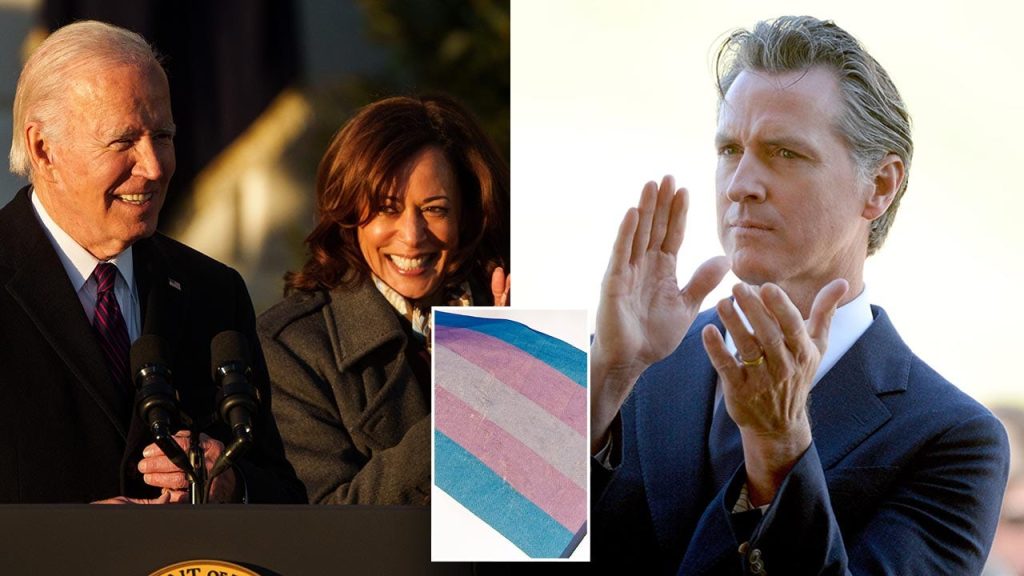The controversy surrounding transgender athletes participating in girls’ sports has reached Martin Luther King Jr. High School in Riverside, California, igniting a complex debate involving student protests, legal mandates, and the evolving landscape of gender identity in education. The focal point of the dispute is a transgender athlete competing on the girls’ cross country team, prompting objections from some parents and students. Adding to the complexity, two female athletes allege that school administrators compared their “Save Women’s Sports” T-shirts to swastikas, sparking further outrage and accusations of censorship. The situation has drawn national attention, with prominent women’s sports advocates weighing in on the debate.
The Riverside Unified School District (RUSD), responding to the mounting pressure, issued a statement asserting that its hands are tied by California state law, which mandates the inclusion of transgender athletes in sports consistent with their gender identity. The district pointed to specific sections of the California Education Code, California Code of Regulations, and California Interscholastic Federation (CIF) bylaws as legal justification for their decision. They emphasized that their actions are driven by compliance with state and federal law, not by a disregard for the concerns raised by some parents and students. RUSD encouraged those with objections to direct their concerns to lawmakers in Sacramento and Washington D.C., who have the power to change the legislation. The district’s statement also highlighted its commitment to its core values of equity and well-being, emphasizing that its policies aim to protect all students from discrimination based on gender identity. Conspicuously absent from the RUSD statement was any direct address of the “Save Women’s Sports” T-shirt controversy.
This incident at Martin Luther King Jr. High School reflects a broader trend of legal and political battles surrounding transgender participation in sports. California, with its 2014 legislation (AB 1266), has been at the forefront of this issue, granting students the right to participate in activities aligning with their gender identity. This legal framework has created challenges for institutions navigating the competing interests of inclusivity and fairness in sports. The University of Nevada, Reno, faced a similar predicament in 2023 when its women’s volleyball team threatened to forfeit a match against a team with a transgender athlete. The university, citing Nevada’s Equal Rights Amendment, which includes gender identity as a protected category, explained that forfeiting the match for reasons related to gender identity could be construed as discrimination. Ultimately, the match was forfeited due to insufficient players, but the underlying tension remained.
The conflict extends beyond California and Nevada, with legal challenges arising in states like New Hampshire and Virginia, both of which had laws restricting transgender inclusion in sports. Judges in both states, appointed during the Obama administration, ruled in favor of transgender athletes participating on girls’ teams. These rulings underscore the complex interplay between state laws, judicial interpretations, and federal regulations like Title IX. The Biden administration’s interpretation of Title IX, which extends protections to gender identity, further complicates the matter. While the administration claims this interpretation doesn’t directly address athletic eligibility, critics argue that it opens the door for greater inclusion of transgender athletes in women’s sports.
The students at Martin Luther King Jr. High School have not remained passive in this debate. Despite the RUSD’s stance and the new dress code seemingly aimed at suppressing dissenting views, students have persisted in wearing “Save Women’s Sports” T-shirts. According to Sophia Lorey, Outreach Director of the California Family Council, over 150 students have worn the shirts since the controversy began, with some facing disciplinary action for their defiance. These students, supported by some parents and advocacy groups, plan to continue their protests, highlighting the deep divisions within the school community and the broader public on this contentious issue. This ongoing demonstration of student activism suggests that the debate surrounding transgender athletes in sports is far from resolved.
The situation at Martin Luther King Jr. High School encapsulates a complex societal debate with far-reaching implications. The core question revolves around balancing the rights and inclusion of transgender individuals with the concerns of some female athletes regarding fairness and competition. Legal frameworks, both at the state and federal level, are still evolving, creating challenges for schools and athletic organizations seeking to implement policies that respect both legal mandates and the diverse perspectives within their communities. The students’ continued protests highlight the importance of open dialogue and consideration of all viewpoints in this ongoing and evolving discussion. The resolution, likely coming through further legal challenges and legislative action, will have a significant impact on the future of sports and the broader understanding of gender identity in education and society.


